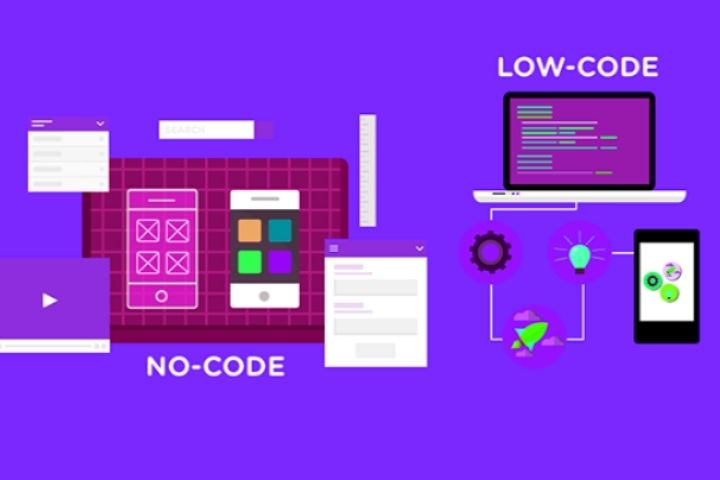In the article, we try to cover No-Code in a precise way.
According to the report ‘ The Future of the Workplace ‘ by consulting firm McKinsey, it is estimated that by 2030, the demand for technology skills will increase by 55%. With this demand increasing in virtually every industry, it is not surprising that more and more people are studying how to adapt to this change.
However, while we could see an increase in the number of non-tech workers interested in learning and developing those skills, this does not have to be entirely necessary. The rise of new no-code technologies may mean that, instead of having to train, many can already begin to develop their careers in this field without the technical knowledge that was previously required.
Table of Contents
The Democratization Of This Technology Will Open Many Doors
The most significant benefit of no-code or low-code platforms will be allowing companies without information technology (IT) teams to implement customized solutions for their business, in a faster and more integrated way, which will make technology directly benefit a particular function within the company.
Rather than relying on developers, these platforms – which require virtually no code – will democratize application use by significantly reducing the technical barrier to adoption. It is true that there will be an initial cost, but in the long term, the solution will be a cheaper option for many companies that do not have a team dedicated to these developments.
Offering pre-built algorithms and simple drag-and-drop workflows, these platforms will enable non-technical people to implement the technology, opening the doors for salespeople, executives and salespeople to develop smart solutions that enhance their daily work, as well as help to application developers and IT operations professionals.
The Importance Of Hybrid Workforces
But what is the impact of rapidly running and scaling AI applications across low-code platforms? For companies looking to grow their operational share without a dedicated development team, it could be huge. For example, these platforms allow you to design and operate – in a very simple way – a conversational AI that helps with daily tasks, such as a customer service agent, a computer support service engineer or a specialist in human Resources.
Leveraging AI in this way can have a transformative impact in highly customer-centric industries such as finance, healthcare, or legal, by creating a hybrid template to share the burden of customer inquiries across channels. . With human and digital employees working together, humans will be able to focus their energies on marketing, project management and the most sophisticated customer inquiries, while AI will constantly improve their responses thanks to machine learning capabilities.
The Change In The Role Of The Developer
These reduced code solutions will increase accessibility and allow each expert in their field to act as a “citizen developer”, capable of driving intelligent automation in their company. Although this has enormous potential for many companies to benefit from new technologies, this lowering of the barrier to entry will also have an impact on the work of developers.
These no-code or low-code platforms demonstrate that – once applications are built – new opportunities can be discovered where more complex refinements will further drive efficiencies or improve results. In this case, being able to edit the code will be vital. On the other hand, it is important that all systems and their codes (both high and low) are aligned and can collaborate.

